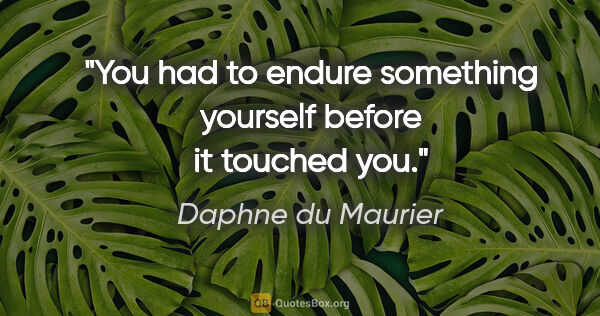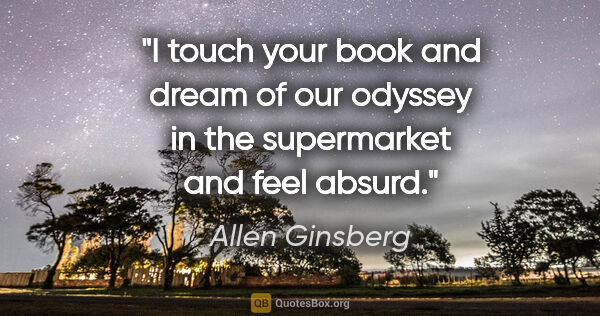Touching Quotes (page 32)
This philistinism of interpretation is more rife in literature than in any other art. For decades now, literary critics have understood it to be their task to translate the elements of the poem or play or novel or story into something else. Sometimes a writer will be so uneasy before the naked power of his art that he will install within the work itself - albeit with a little shyness, a touch of the good taste of irony - the clear and explicit interpretation of it. Thomas Mann is an example...
Susan Sontag
Her own body was such a familiar and unremarkable thing to her that she was puzzled by the convulsive ecstasy men could take from it, by the intense and amusing need they had merely to touch it, to reach out urgently and press it, squeeze it, pinch it, rub it. She did not understand Yossarian's lust; but she was willing to take is word for it.
Joseph Heller

Pop, would go one of the six-inch guns; a small flame would dart and vanish, a little white smoke would disappear, a tiny projectile would give a feeble screech - and nothing happend. Nothing could happen. There was a touch of insanity in the proceeding, a sense of lugubrious drollery in the sight; and it was not dissipated by somebody on board assuring me earnestly there was a camp of natives - he called them enemies! hidden out of sight somewhere.
Joseph Conrad
….but at the same time, they got a miracle. It wasn’t the kind that comes on a Macy’s Thanksgiving Day float. And it wasn’t the one that they wanted, where God would reach down from the sky and touch their girl with a magic wand and restore her to perfect health. Maybe that will still happen-who knows? I wouldn’t put anything past God, because he or she is one crafty mother. Still, they did get a miracle, one of those dusty little red-wagon miracles, and they understand this.
Anne Lamott
Will Scott grinned. Grizel Beaton had slapped his face four times, and apart from these four small misjudgements, they had never touched on a topic more personal than which of Buccleuch’s bastards to invite to the wedding. But he liked her fine; and she was good and broad where it would matter to future Buccleuchs, which summed up all his mind so far on the subject.
Dorothy Dunnett
I suppose next time I come home I shall find you wearing false moustaches—or are you doing so now?'
Poirot winced. His moustaches had always been his sensitive point. He was inordinately proud of them. My words touched him on the raw.
'No, no, indeed, mon ami. That day, I pray the good God, is still far off. The false moustaches! Quelle Horreur!’
He tugged at them vigorously to assure me of their genuine character.
'Well, they are very luxuriant still,' I said.
'N’est-ce pas?...
Agatha Christie


